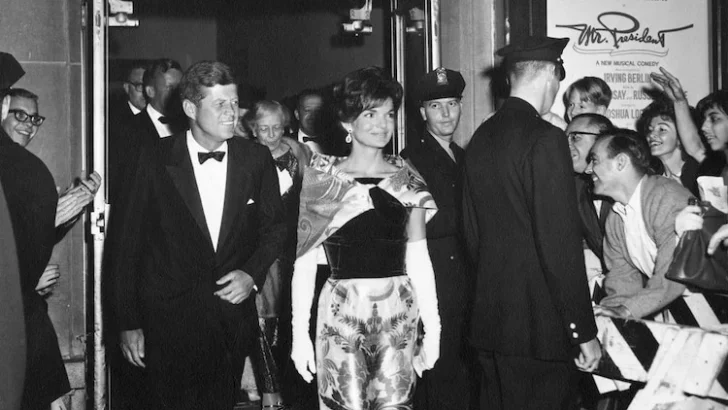“Camelot” is a reference to President John F. Kennedy’s administration.
Kennedy’s brief, ill-fated presidency has been highly mythologized; some people point to it as a shining example of what the US government should look like.
Calling that administration “Camelot” highlights its idealized qualities.
Origin of “Camelot”
Camelot, of course, was the castle at the center of Arthurian Britain.
In legend, King Arthur and his knights of the round table lived in Camelot, or at least they rested there in between adventures.
Camelot is an imaginary spot, but historians believe that it may have been based on a real location in Cornwall or Wales. In the same way, Arthur may have been based on a real Celtic leader.
The word “Camelot” evokes utopian ideals and high hopes.
King Arthur and his knights are supposed to be pure-hearted, chivalrous, and endlessly courageous.
In the same way, the Kennedy administration is sometimes remembered as a period of optimism, expanding opportunities, and humanitarian goals. JFK has been lionized as a civil rights hero; he is also remembered for his dream of exploring outer space.

The Kennedy legacy
Jackie Kennedy, the widow of John F. Kennedy, was the first to refer to the John F. Kennedy administration as Camelot.
She gave an interview to Life magazine just days after JFK’s assassination. Jackie deliberately brought up Camelot during the interview, and even quoted from a popular musical of the day.
Said Mrs. Kennedy: “Don’t let it be forgot, that for one brief, shining moment there was Camelot.”
Years later one of Jackie’s Secret Service agents, Clint Hill, wrote that Jackie had deliberately planted the reference: “She wanted to be sure he was remembered as a great president.”
Of course, calling the JFK administration “Camelot” also implies a kind of monarchy.
The Kennedy family is sometimes called “American royalty,” and pundits love to talk about how that family is the closest thing America has to a royal family.
Linking the administration to one of the most famous kings in history just furthers that association.
It’s worth noting that JFK’s critics argued that he never managed to achieve most of his own high-flown goals.
His plans to enact Medicare and to expand civil rights were postponed until the Johnson administration.
His actions may have helped embroil the U.S. in Vietnam. And his Bay of Pigs invasion was a thorough failure.
Even so, Kennedy’s idealism and charm have gone a long way to make him the most popular president in American history.
Decades after JFK’s death, Barack Obama tried to sum up the Kennedy legacy:
To those of us of a certain age, the Kennedys symbolized a set of values and attitudes about civic life that made it such an attractive calling.
The idea that politics in fact could be a noble and worthwhile pursuit. The notion that our problems, while significant, are never insurmountable.
The belief that America’s promise might embrace those who had once been locked out or left behind.
The responsibility that each of us have to play a part in our nation’s destiny, and, by virtue of being Americans, play a part in the destiny of the world.
Use of “Camelot” in a sentence
- Many historians contrast the perceived elegance and idealism of the “Camelot” era with the political turbulence and social change that marked the late 1960s in the United States.
- Despite the tragic end of Kennedy’s presidency, the “Camelot” myth endures, continuing to shape our collective memory of his time in office.